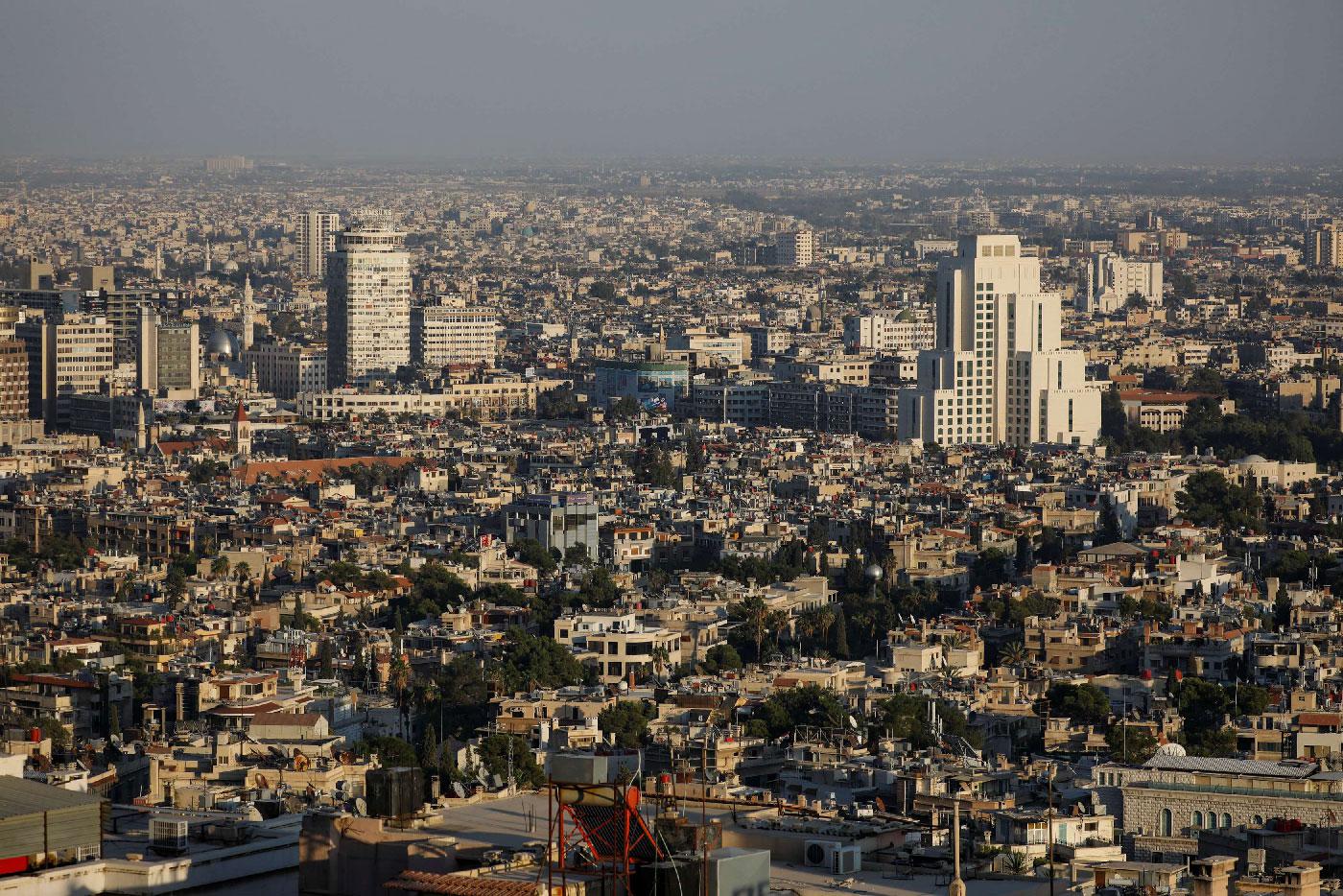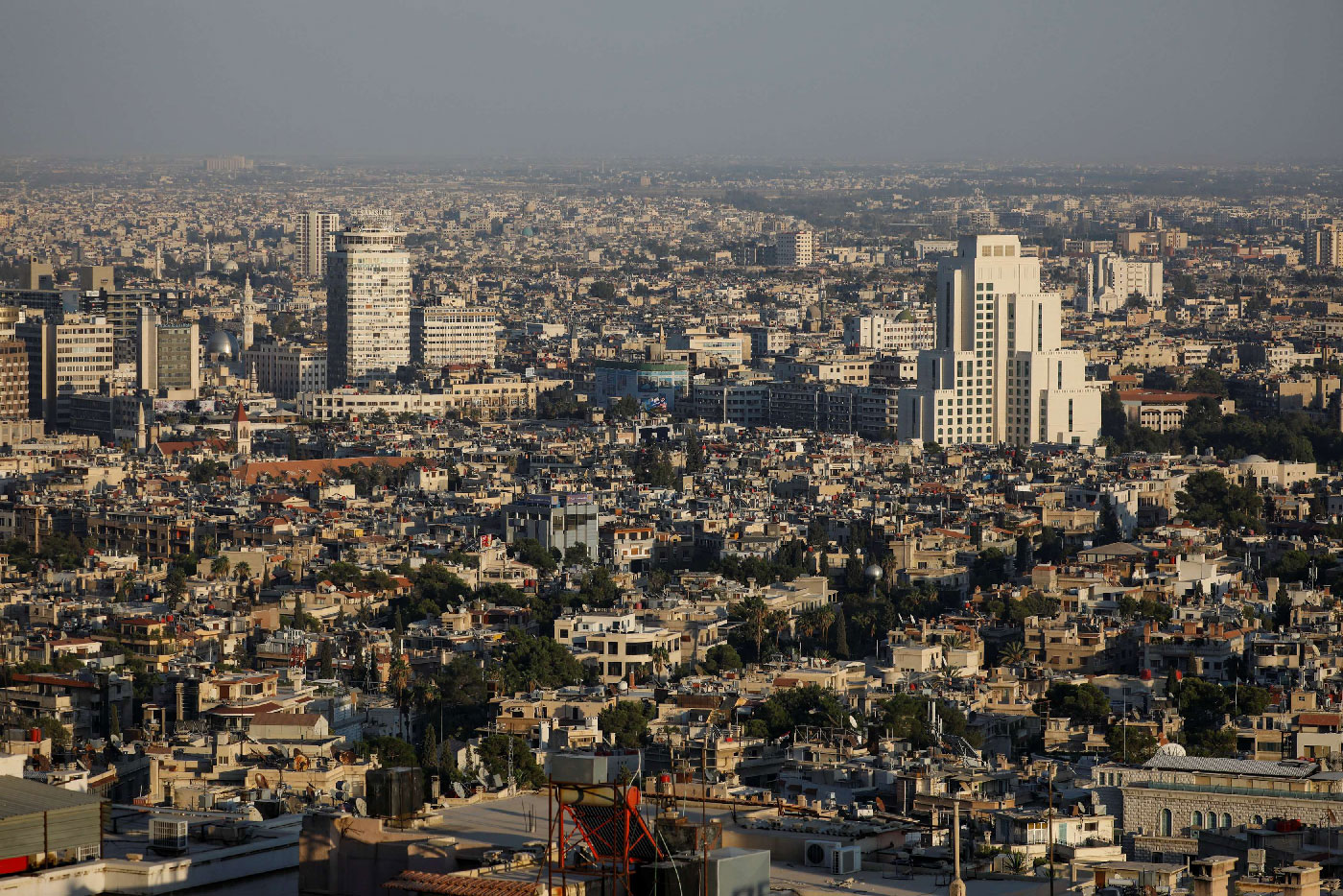UAE reopens embassy in Damascus
DAMASCUS - The United Arab Emirates reopened its embassy in Damascus and raised its flag outside it on Thursday, seven years after it severed ties with Syria, a step that marks a big diplomatic boost for President Bashar al-Assad from a US-allied Arab state that once funded rebels fighting him.
The UAE recalled its ambassador from Syria in 2011 and broke ties with the Assad regime in February 2012, as the repression of nationwide protests demanding regime change was escalating into a war which has now killed more than 360,000 people.
The Syrian Embassy in the UAE remained open.
Saudi-owned al Arabiya television confirmed the UAE embassy reopening first reported by Syria's information ministry, which had invited journalists to cover the event that took place at 1130 GMT at the embassy, located in the Abu Rummaneh district of the capital.
"The UAE decision...came after a conviction that the next stage requires the Arab presence and communication in the Syrian file," tweeted Anwar Gargash, the UAE Minister of State for Foreign Affairs.
The UAE was a supporter of the Syrian opposition, which is now largely confined to the northern Idlib province after losing its strongholds elsewhere.
Some opposition fighters have now joined Turkey for an expected assault on Kurdish forces in northeastern Syria. The UAE and other Gulf Arab supporters of the Syrian opposition view Turkey with suspicion because of its embrace of regional Islamists.
Gargash also tweeted that an Arab role in Syria is necessary now to face Iran and Turkey's intervention. He added that the UAE, through its presence in Damascus, is trying to activate the Arab role in what would "contribute to ending war and strengthening opportunities for peace and stability for the Syrian people."
The UAE does not have an ambassador to Syria yet but its charge d'affaires Abdul-Hakim Naimi visited the embassy and witnessed his country's flag being raised again on the compound.
"The opening of our embassy is a first step for the return of other Arab embassies," Naimi told reporters.
The United Arab Emirates was one of several regional Arab states that backed armed groups opposed to Assad, though its role was less prominent than Saudi Arabia, Qatar or Turkey, rebel sources have said.
Hanging by a thread
Assad's seat as Syrian ruler, which he inherited from his father in 2000, appeared to be hanging by a thread until Russia's 2015 military intervention turned things around.
Nearly eight years into the war, Assad has recovered control of the bulk of Syria with critical support from Russia, Iran, and Iranian-backed Shiite Muslim groups such as Lebanon's Hezbollah.
His military advances gathered pace this year with the defeat of the last big rebel enclaves near Damascus and recovery of the southwestern region at the border with Jordan and the Israeli-occupied Golan Heights.
The move to reopen the embassy now is seen as another step in efforts to bring the Assad regime back into the Arab fold as the conflict winds down, after years of diplomatic isolation.
The UAE Ministry of Foreign Affairs and International Co-operation said the reopening of the embassy “reaffirms the keenness of the UAE to restore relations between the two friendly countries to their normal course".
It said the move is intended “to strengthen and activate the Arab role in supporting the independence, sovereignty and territorial integrity of the Syrian Arab Republic and to prevent the dangers of regional interference in Syrian Arab affairs”.
Warming up to Assad is seen by some regional powers as a way of luring Syria away from the exclusive regional influence of Iran.
Tehran has been a staunch supporter of Assad's government and has expanded its military footprint in Syria throughout the course of the conflict.
US President Donald Trump claimed on Monday that Saudi Arabia, Iran's regional archfoe, had agreed to finance Syria's huge reconstruction needs, although some have raised doubts over whether the Kingdom can contribute a significant amount while it is engaged in a costly war in Yemen against Iran-backed Huthi rebels.
The Syrian government has said it will cost close to $200 billion to rebuild the country, while others put the cost even higher.
"Saudi Arabia has now agreed to spend the necessary money needed to help rebuild Syria, instead of the United States," Trump said on social media.
The Arab fold
Assad's key ally Russia has played a significant role in lobbying for the once-pariah regime to be welcomed back among Arab nations.
A visit to Damascus earlier this month by Sudanese President Omar al-Bashir - who himself currently faces widespread protests against his rule - had been interpreted by some observers as a sign of that trend.
Bashir was the first Arab head of state to visit the Syrian capital since the start of the conflict, flying into Damascus airport.
In October, Assad told a Kuwaiti newspaper that Syria had reached a "major understanding" with Arab states after years of hostility. He did not name the Arab countries in the interview, which was his first with a Gulf paper since the war erupted, but said Arab and Western delegations had begun visiting Syria to prepare for the reopening of diplomatic and other missions.
That interview came on the heels of a surprisingly warm meeting between the Syrian foreign minister and his Bahraini counterpart on the sidelines of the UN General Assembly in September. The meeting turned heads because it featured hugs between the two ministers.
Syria was expelled from the 22-member Arab League in 2011. Arab countries have sanctioned Damascus and condemned its use of military force against the opposition. Oman, with its policy of quiet diplomacy, is the only Gulf Arab country to have kept its embassy in Damascus open throughout the civil war.
An Arab diplomat, speaking on condition of anonymity, said last week he believed a majority wanted Syria to return to the League - with only three or four states expected to oppose this - but there had been no official proposal yet.
The past few days have seen a flurry of diplomatic activity that looks set to continue until the next summit of the Arab League, due in Tunis in March.
"Recent discussions on this issue have not yielded a consensus," Hossam Zaki, the League's deputy secretary general, told reporters in Cairo on Monday.
Egyptian state-run media have called for Syria to be reinstated. The secretary general of the Arab League, veteran Egyptian diplomat Ahmed Aboul Gheit, said in April that the decision to suspend Syria had been "hasty".
Ali Mamluk, Syria's intelligence chief and a key figure in the Assad regime, travelled to Egypt last week on an official visit.
Breaking isolation
With military operations winding down in several parts of the country and the capital fully secure, Damascus is also working on breaking its physical isolation.
Trade with Jordan resumed in recent weeks after the reopening of the border crossing. Jordan is another US-ally that had backed the rebels.
Thursday saw the first commercial flight to Tunisia in years. A Cham Wings Airlines jet completed the first flight between the two countries since 2011.
"This trip is the reopening of tourism links between Syria and Tunisia," Moataz Tarbin, the head of the tourism firm that organised the flight, said. There are also direct flights on Syria's national carrier to Dubai and between the port city of Latakia and the emirate of Sharjah.
Arab state support was funnelled to Syrian rebels through a programme overseen by the US Central Intelligence Agency until President Donald Trump ordered it shut down last year.
In another potential boost to Assad, Trump also last week decided to withdraw US forces that are deployed in areas of northern and eastern Syria in support of Kurdish-led militia.
Damascus has vowed to recoup control of the region currently controlled by the US-backed Syrian Democratic Forces. The area, which includes oil fields, water resources and farmland, amounts to roughly one quarter of Syria.


